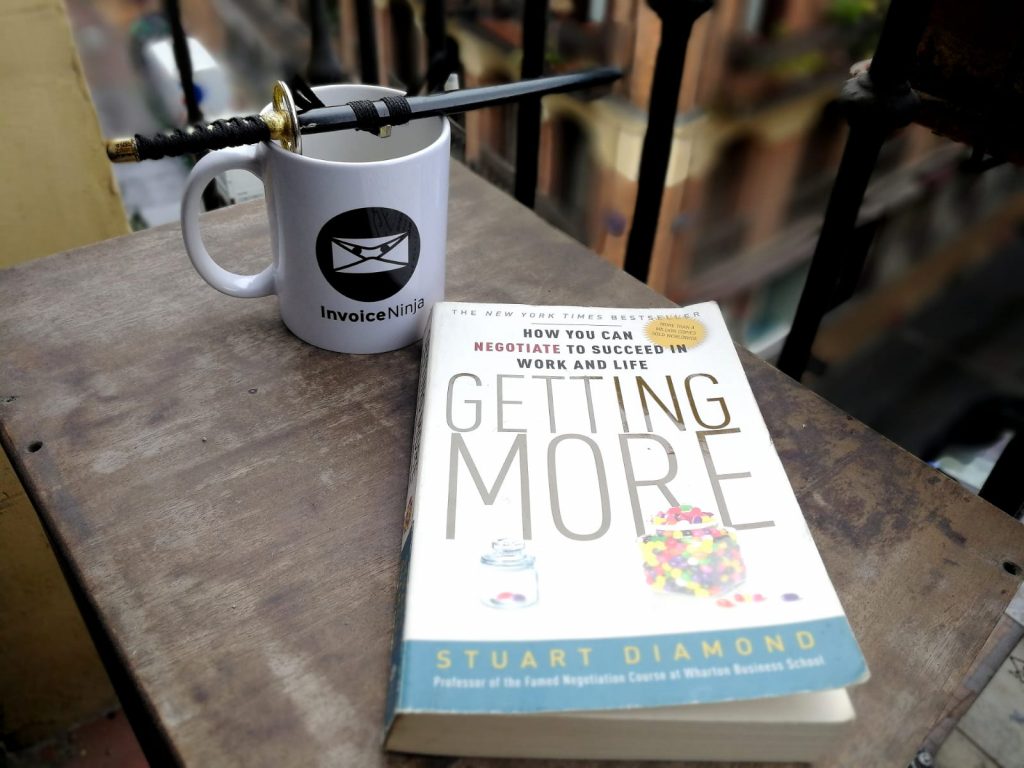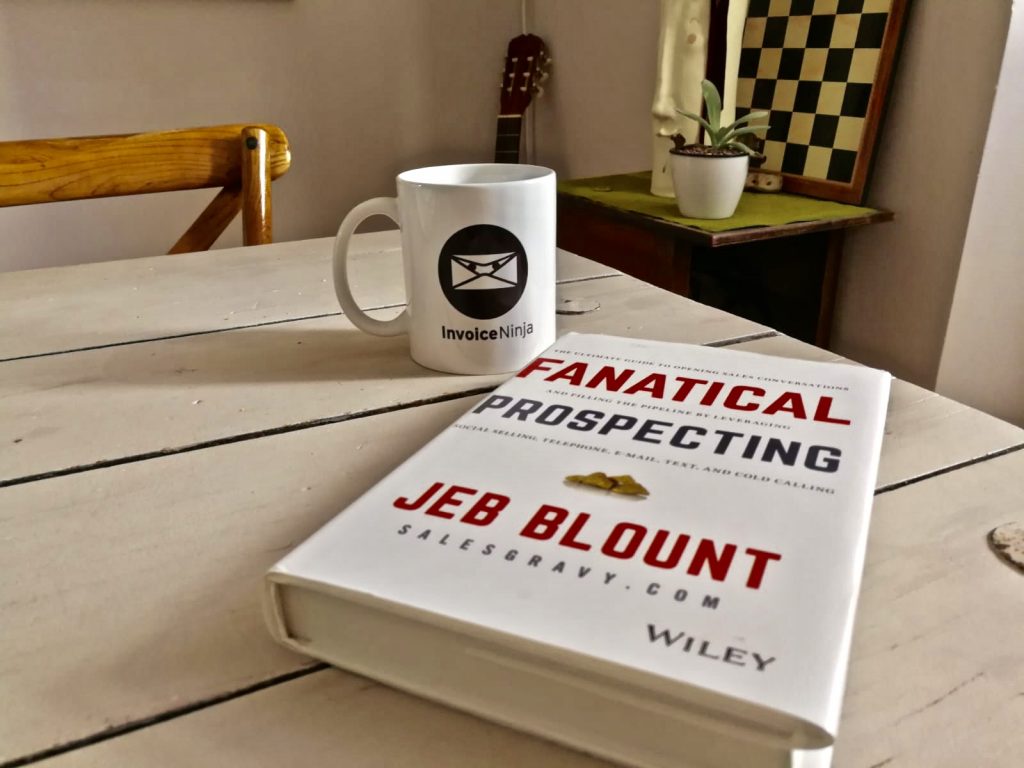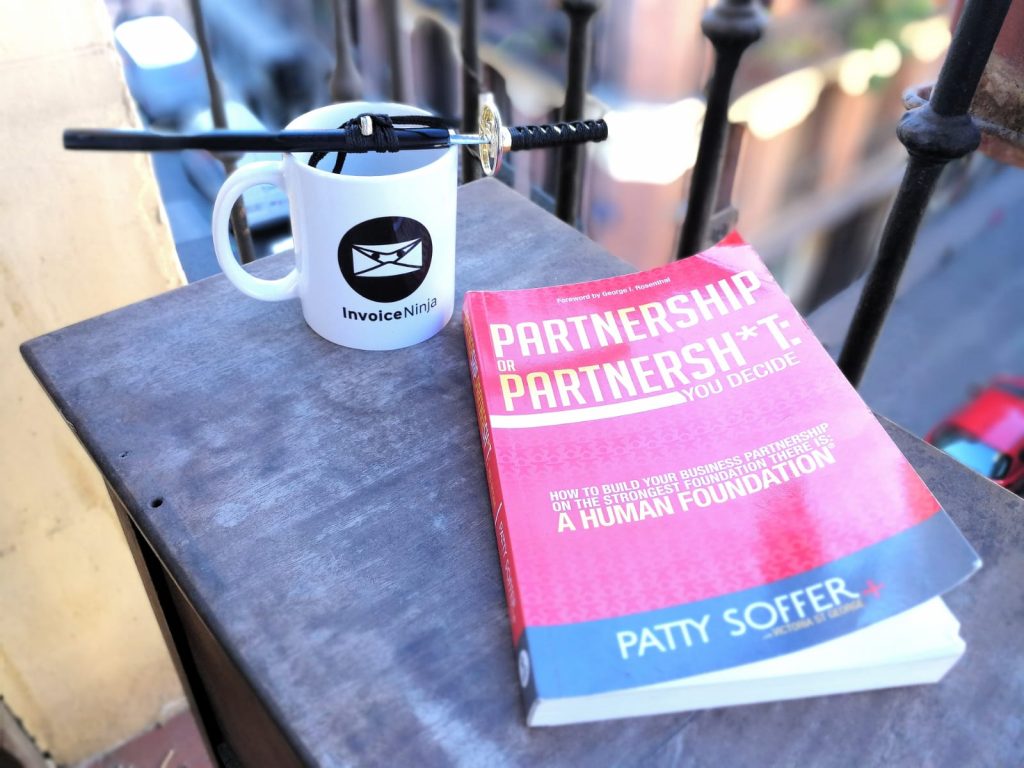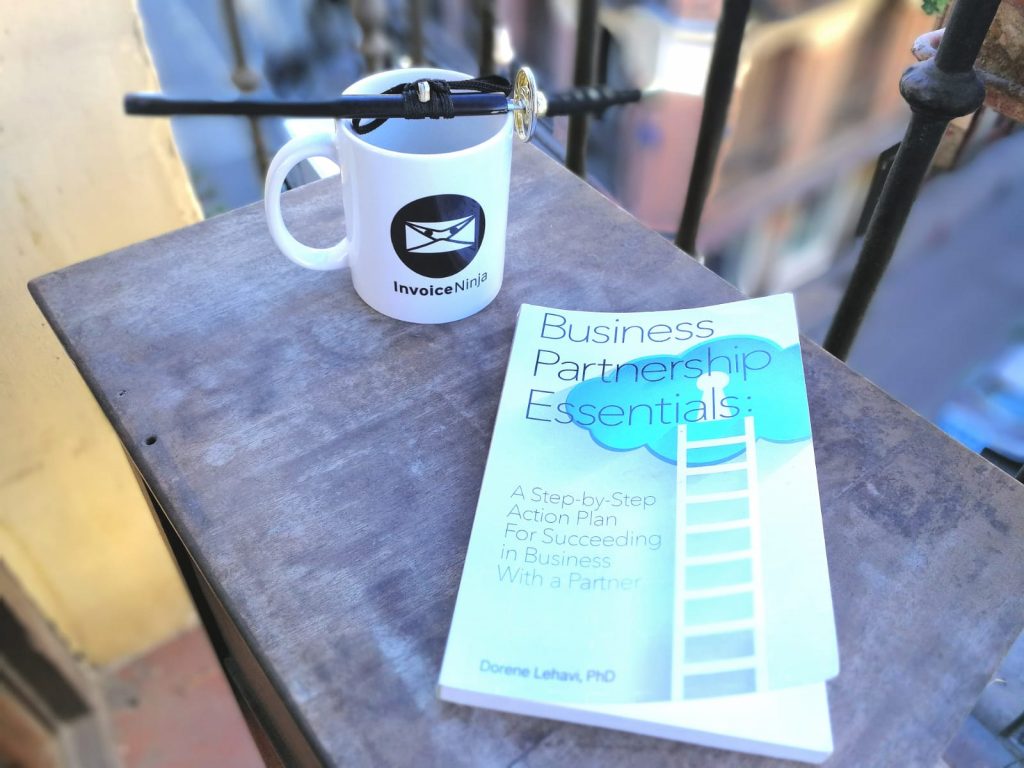Short & Sweet reviews of our favorite books for entrepreneurs. This weeks review:
NINJA BOOK REVIEW: GETTING MORE: How You Can Negotiate To Succeed In Work & Life
by Stuart Diamond
5 out of 5 NINJA STARS
We have read and reviewed a lot of negotiation books here at Invoice Ninja, and we won’t stop any time soon! That’s because there’s always some new amazing nugget of insight to learn from. Speaking of which, Getting More: How You Can Negotiate To Succeed in Work & Life is jam-packed full of nuggets you need to know to achieve your goals.
ABOUT THE AUTHOR
“Stuart Diamond is one of the world’s leading experts on negotiation. He has advised leaders from 220 of the Fortune 500 companies, the U.N., The World Bank, politicians, parents, children, professionals, and others on getting more. He won a Pulitzer Prize for his reporting at The New York Times, earned a law degree from Harvard and an MBA from Wharton, headed companies from technology to agriculture, and teaches in many countries.”
1 SENTENCE BOOK SUMMARY
Challenging conventional wisdom about negotiations, Getting More asserts that “the key to getting more is a deeper understanding of each person’s needs and sensibilities.
FAVORITE QUOTE
“Goals are the be-all and end-all of negotiations. You negotiate to meet your goals. Everything else is subservient to that. The goals are what you are trying to accomplish. Don’t try to establish a relationship unless it brings you closer to your goals. Don’t deal with others’ interests or needs or feelings unless it brings you closer to your goals. Don’t give or get information unless it brings you closer to your goals. ”
KEY TAKEAWAYS
- There are 6 key tools for negotiation that are “almost invisible to everyone”: 1) Be dispassionate 2) Prepare 3) Find the Decision Maker 4) Focus on goals, not who is right. 5) Make human contact 6) Acknowledge the other party’s position and power, valuing them.
- “Emotions and perceptions are far more important than power and logic in dealing with others.
- “Anything you do in a negotiation should explicitly bring you closer to your goals for that particular negotiation. Otherwise, it is irrelevant or damaging to you.”
- “Find out what third parties they respect and who can help you.”
- “When people are irrational, they are emotional. When they are emotional, they can’t listen. When they can’t listen, they can’t be persuaded.”
- “The right answer to the statement “I hate you is “Tell me more. ” You learn what they are thinking or feeling, so that you can better persuade them.
- “Take small steps. Lead people from the pictures in their heads to your goals.”
- “Find out what the other party cares about and doesn’t care about, big and small, tangible and intangible, in the deal or outside the deal, rational and emotional.
- “Name their bad behavior when they are not consistent with their own policies.”
- “Don’t deceive people. They will find out.”
- “The most important asset you have in any human interaction is your credibility. If people don’t believe you, it’s hard to convince them of anything.”
- “Embrace differences: it leads to more ideas, more options, better negotiations, better results.
- “The moment you use raw power over someone, the relationship is usually over.”
- “Focusing on people will get you much more. Even in a transactional situation, people are 5 times as likely to help you if you treat them as individuals. The numbers are staggering: 90 percent versus about 15 percent willing to help.”
- “Explaining your perceptions is the last thing you should do. First, learn their perceptions.”
OUR NINJA OPINION
Look, there is a reason this book is used to train employees at Google woldwide, as well as by US Special Operations to promote stability in Afghanistan. There’s a reason that the Wall Street Journal called it “The #1 Best Business Book To Read For Your Career.” With that in mind, does our opinion really matter? Well, if you want our opinion – just read it.





